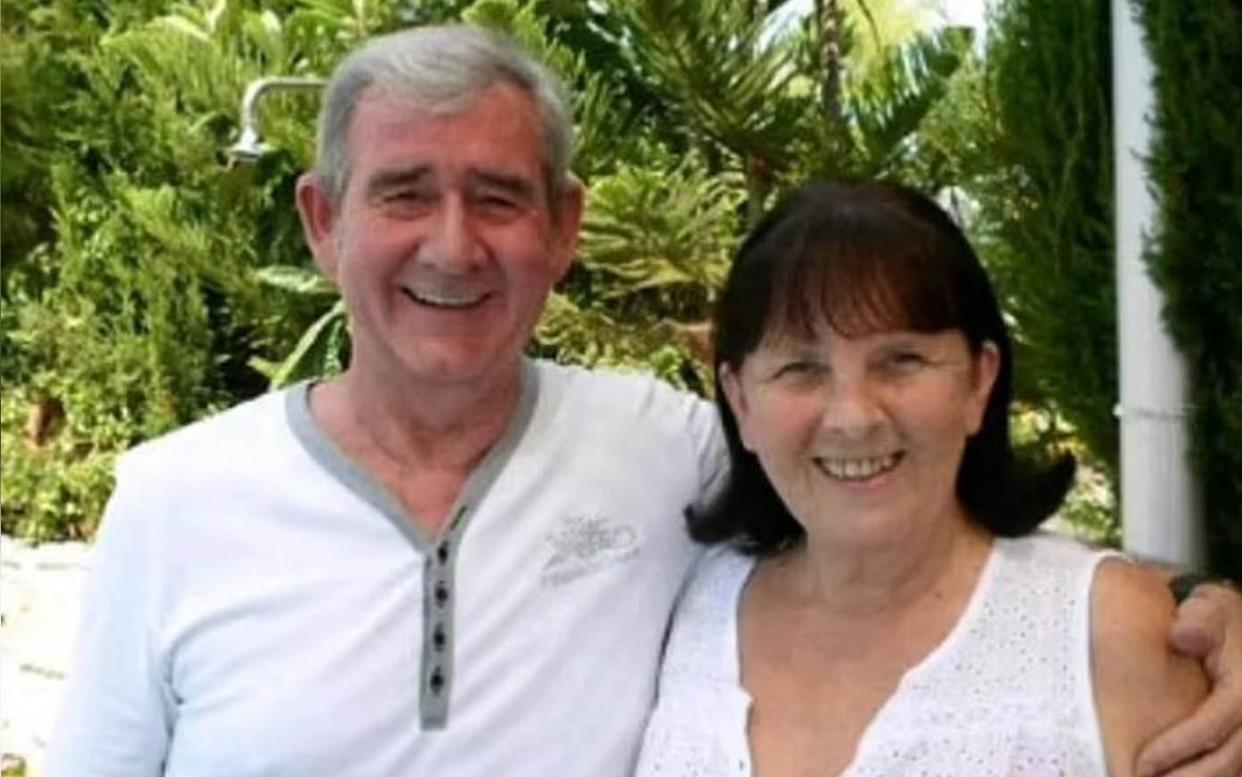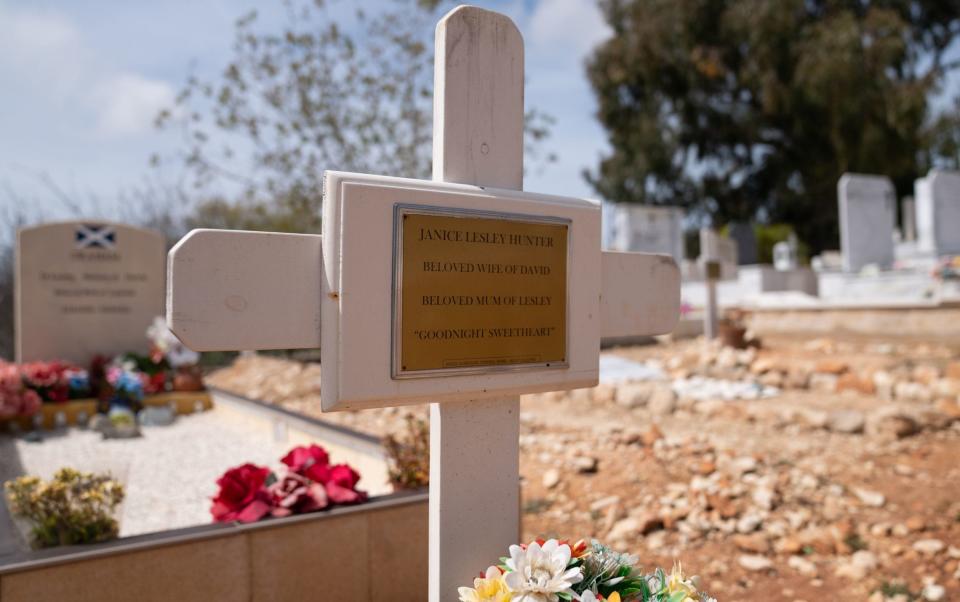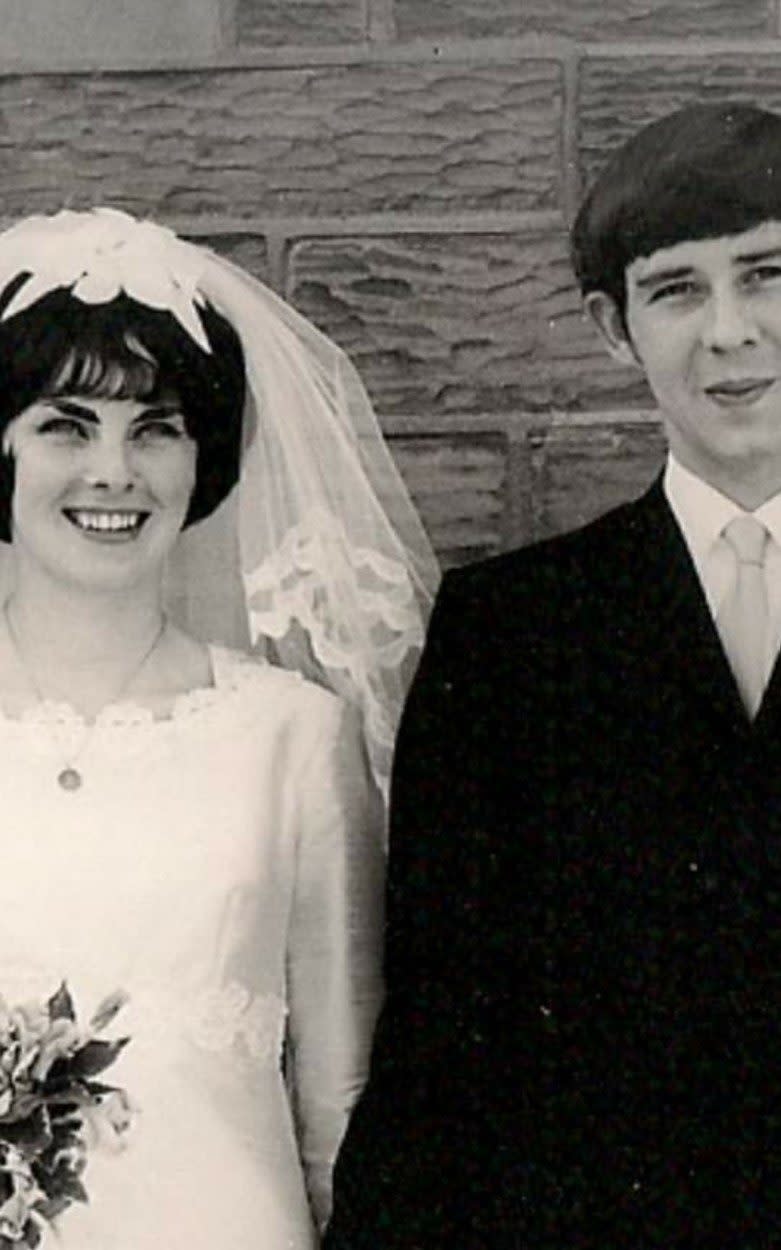Wife of British miner ‘may not have been terminally ill’ before mercy killing

A British woman may not have been terminally ill before she was killed by her husband in what he maintains was assisted suicide, a court has been told.
Janice Hunter, 74, died in 2021 in the home she shared with her husband, David, in the village in Cyprus to which they retired 20 years ago.
Mr Hunter, 75, says she had implored him to end her suffering and that he eventually agreed, smothering her to death.
His daughter and his legal team say that Mrs Hunter was suffering from terminal leukaemia, was in acute pain, and wanted to die.
The court rejected a charge of manslaughter and Mr Hunter, a former miner from Northumberland, is on trial for murder – a charge he strongly denies.

His late wife’s doctor told a court in Paphos that she was suffering from a rare blood cancer but may not have had terminal leukaemia.
Dr Ourania Seimeni said that Mrs Hunter was suffering from myelodysplastic syndrome (MDS), a type of blood cancer, and that it was not necessarily terminal but that it was difficult to say for sure.
She said she could not predict how long Mrs Hunter may have lived. Her patient had lost weight, was in pain and suffering from diarrhoea, and her condition was worsening, Dr Seimeni said.
She said that around a third of MDS cases eventually lead to leukaemia.
In a hearing on Monday, another expert, Dr Andreas Pantelides, put the percentage considerably higher, saying that about 45 per cent of MDS patients develop leukaemia.
He told the court that the only sure way to know whether Mrs Hunter was suffering from leukaemia would have been through obtaining bone marrow samples.
Mrs Hunter may have been suffering from MDS or leukaemia or both, the doctor told the court.

The couple, originally from Ashington in Northumberland, moved to Cyprus two decades ago.
It was to be their dream retirement, but Mrs Hunter became increasingly ill.
After suffocating his wife, Mr Hunter contacted his brother through Facebook to tell him what he had done.
He then tried to commit suicide by taking pills and alcohol. But his brother contacted British police who then alerted their counterparts in Cyprus.
Cypriot police rushed to the Hunters’ home in the village of Tremithousa and took Mr Hunter to hospital, where he underwent a stomach pump. He was then arrested and eventually charged with murder.
The prosecution has now concluded its arguments. The trial will resume on Monday, when Mr Hunter is due to give evidence.
The hearing will give him the chance to present his version of events and respond to the evidence presented by prosecutors.
“This remains a sad case where the evidence shows David and Janice were in a long-lasting loving marriage (and) that David attempted to take his own life,” said Michael Polak, a British defence lawyer and the head of Justice Abroad, a legal assistance organisation acting for Mr Hunter.
“It has taken considerable time, but we are at the point where David finally has the opportunity to give evidence as to what has taken place. The trial has been difficult for him. However, he is looking forward to giving evidence on Monday.”
The pensioner has been in prison, sharing a cell with around 10 other prisoners, for nearly 18 months.

